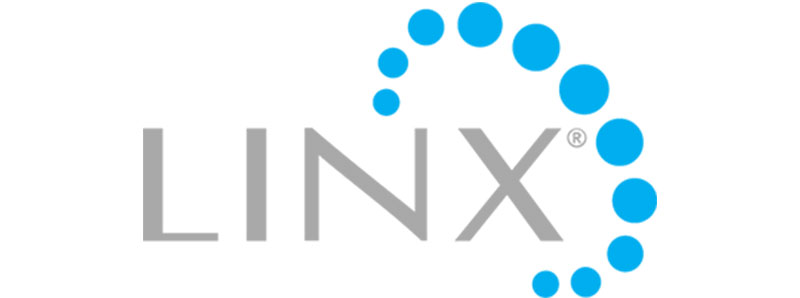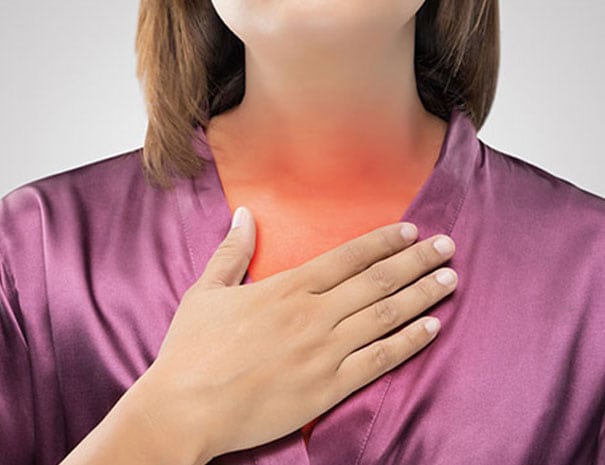GERD, Heartburn and Acid Reflux Treatments

Minor cases of acid reflux or heartburn can be easily treated with over-the-counter products like antacids or bismuth liquid. These products calm the burning sensation that accompanies infrequent and less serious occurrences of heartburn.
- However, when you experience reflux often and suffer the worst symptoms of it, you may suffer from gastroesophageal reflux disease, or GERD.
- You also may need to undergo surgery for severe heartburn if your symptoms do not respond to conventional treatments like over-the-counter products or lifestyle changes.
What is GERD?
GERD, commonly referred to as heartburn or acid reflux, is a condition hallmarked by the reflux or backing up of stomach acid into the lower esophagus. It occurs when the lower esophageal sphincter, or LES, does not close all the way as you eat or drink. This malfunction allows stomach acid to make its way back into the esophagus where it causes symptoms like burning, vomiting, gagging, or regurgitation.
It can also lead to difficulty swallowing, chronic coughing, and wheezing, indicating that the acid is causing serious damage to the lower esophagus. If left untreated, this damage could itself lead to the formation of esophageal cancer.
A number of factors can induce bouts of GERD. However, the primary culprits that doctors attribute to this condition include:
- Spicy foods
- The use of tobacco and/or alcohol
- Certain prescription and over-the-counter medications
- Tight clothing
- Strenuous exercise
- Body position
Hiatal hernias also contribute to chronic and serious cases of GERD. These hernias occur when the top portion of a patient’s stomach overlaps or bulges above the diaphragm and invades part of the chest cavity. They must be repaired with either laparoscopic or invasive surgery.


LINX® Reflux Management System
The LINX® Reflux Management System is a flexible ring that is placed around the esophagus. The ring is made of magnetic titanium beads, and the magnets work to keep the lower esophageal sphincter closed when you are done swallowing while temporarily opening so that you can swallow as normal.
This reduces the instances of the sphincter relaxing abnormally, and allowing stomach acid to flow back up. The treatment is a minimally-invasive option for restoring the body’s natural defense against stomach acid. It is FDA-approved.
Endoscopic Surgery for GERD and Hiatal Hernias
Patients may several options for hiatal hernia repair and GERD symptoms. Depending on the severity of your symptoms and the extent of the damage in your lower esophagus, you could undergo endoscopic surgical repair of the LES.
This procedure involves the surgeon inserting a lighted scope into your throat. Using the scope, your doctor can then stitch the lower esophagus to the top of the stomach. He or she may also stitch the lower esophagus to form pleats to strengthen this part of your digestive tract.
You also may be a good candidate for a surgery called the Stretta procedure. This surgery involves the use of high-energy waves to strengthen the walls of your lower esophagus.
The waves create scar tissue that should lessen your acid reflux and heartburn. Most patients need to go through more than one Stratta procedure to experience permanent relief of their symptoms, however.

Laparoscopic and Invasive Fundoplication Surgery
Patients whose GERD does not respond to these procedures or those who show more extensive signs of damage in their digestive tracts may need to undergo a surgery called a fundoplication. This surgery involves wrapping the upper stomach around the lower esophagus. It aims to strengthen this part of the stomach to eliminate or reduce symptoms of GERD.
Fundoplication can be performed laparoscopically or invasively. If you go through the invasive form of this operation, you can expect the doctor to make a large incision in your abdomen. This lengthy incision is required for the surgeon to access the lower esophagus and upper stomach.
Regardless of what form of fundoplication surgery you undergo, you will be expected to prepare several days in advance for it. You will be restricted to a liquid diet and be required to perform an enema on yourself two to three days before your schedule surgery date.
You also may be required to stay one to two days in the hospital if you undergo the invasive form of this surgery. After you are sent home to recover from fundoplication surgery, you will be asked to limit your activities and adhere to a carefully planned diet. These instructions are critical to your recovery and the easing or elimination of your GERD.
Chronic heartburn and acid reflux can indicate that you suffer from a more serious case of gastroesophageal reflux disease. You also may have a hiatal hernia that must be repaired through endoscopic, laparoscopic, or invasive surgery. Surgery could be your best option for overcoming your symptoms and resuming your normal life again.

